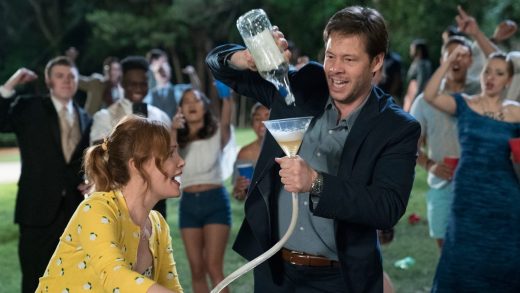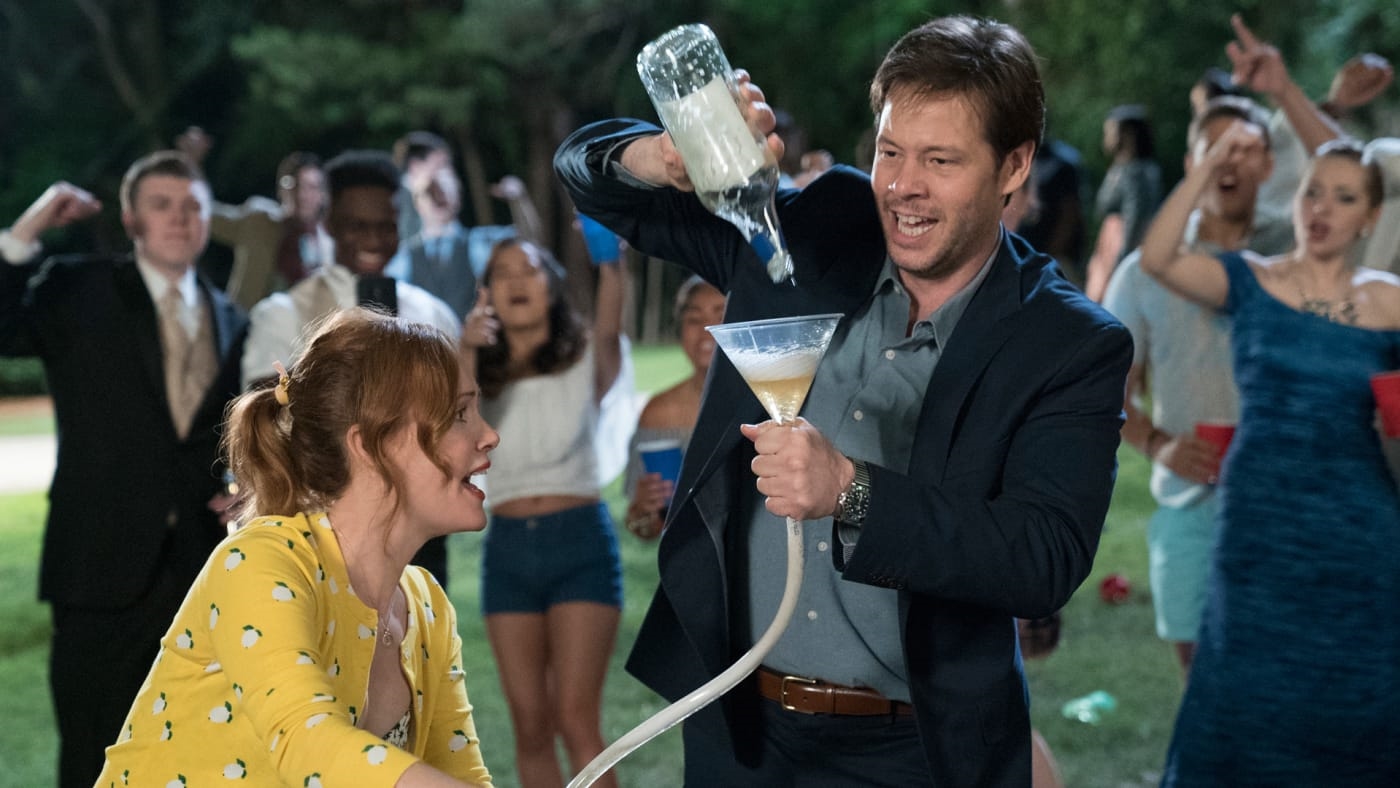How “Blockers” Became a Raunchy, Feminist Sex Comedy for a Post-#MeToo World
So, what’s the aspiring blockbuster Blockers about?
In a recent Today Show interview with John Cena, who co-stars in the film, Hoda Kotb chirped: “It’s about prom!”
Well, that’s one way of putting it.
Blockers, which is now playing in theaters, is indeed partly set at prom, but it’s not about the goings-on at some punch-soaked high school dry hump-athon. Instead, Blockers is actually about three girls determined to lose their virginity, post-slow dance, and the three parents determined to stop them. It’s a hypocrisy-exploding, feminist take on that ages-old genre: the raunchy teenage sex pact comedy. If some media outlets like the Today Show tend to tiptoe around the subject matter–Cena has to use the euphemism “waltz into womanhood”–it’s probably because American culture has always been uncomfortable with the idea of young women eager to get laid. But according to Kay Cannon, the time has come to deal with that discomfort—and maybe even laugh about it.
Cannon, who makes her directorial debut on Blockers, is a writer with impeccable comedy credentials. She kicked off her career on 30 Rock, where she wrote for the show’s entire run. The same year Liz Lemon and Jack Donaghy sailed (separately) into the sunset, Cannon made the leap to movies by writing Pitch Perfect. In between penning that film’s two hit sequels, she also wrote for sitcoms like New Girl, and did uncredited work punching up screenplays. It was one of the latter jobs that led to her taking on Blockers.
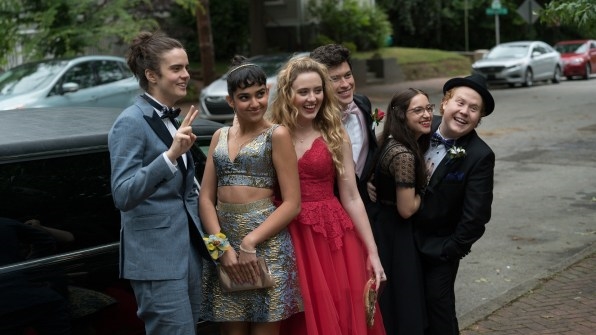
When Seth Rogen and his creative partner Evan Goldberg were making Neighbors 2: Sorority Rising, they consulted a roundtable of female comedy writers to vet the screenplay. Cannon was among them. By the time she was finished, Rogen and Goldberg were so impressed with her showing in the writers’ room, they wanted to work with her again in the future. The perfect opportunity arose as the pair’s production company, Point Grey, set out to produce the screenplay that became Blockers. At that time, it was called Cherries, and it desperately lacked a woman’s point of view. Enter Kay Cannon.
“The girls didn’t have a lot going on in the draft I first read,” Cannon says of the male-generated original screenplay. “I thought it was really funny but I was excited to get my hands in it. I wanted to get in there and give it a female perspective. Not only was I a teen girl who lost her virginity but I’m now a parent of a daughter.”
One of Cannon’s major changes to the script was to make the three teenage leads (Gideon Adlon, Kathryn Newton, Geraldine Viswanathan) as nuanced as the three parents (Ike Barinholtz, Cena, and Leslie Mann, the latter of whom’s character was originally supposed to be a third dad.) In the finished film, the three young women each have distinct personalities and drives. Viewers will not only be able to tell them apart, they might also kinda want to hang out with them–or remember being one of them. Furthermore, these high school girls are allowed to be funny and vulgar in ways that are usually strictly the province of high schools bros. (“I’d rather eat ten dicks than one Mound,” Newton’s character says when declining a coconut candy bar.)
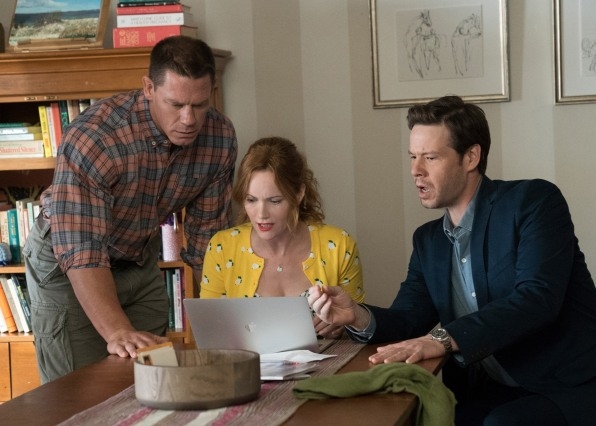
The three young characters come off feeling fully realized–something that doesn’t happen as often as it should for women in studio comedies.
“A lot of comedies from male filmmakers have stories that are centered around guys,” Cannon says. “And I get it, I want to tell stories from my perspective too. But the women in those comedies are usually just objects of desire, and so you’re not getting any insight into what they’re feeling or thinking and wanting to do.”
Cannon got a crash course in how female characters turn out this way just after she finished shooting Blockers. She had a few weeks of downtime before going into post-production, which she filled by accepting some offers to do more punch-up roundtables for forthcoming comedies. She was surprised, however, at the consistency of echoes between some of these scripts and the things she’d taken issue with in the original draft of Blockers. While the male characters in these comedies were uniformly well-developed, the female characters felt like afterthoughts.
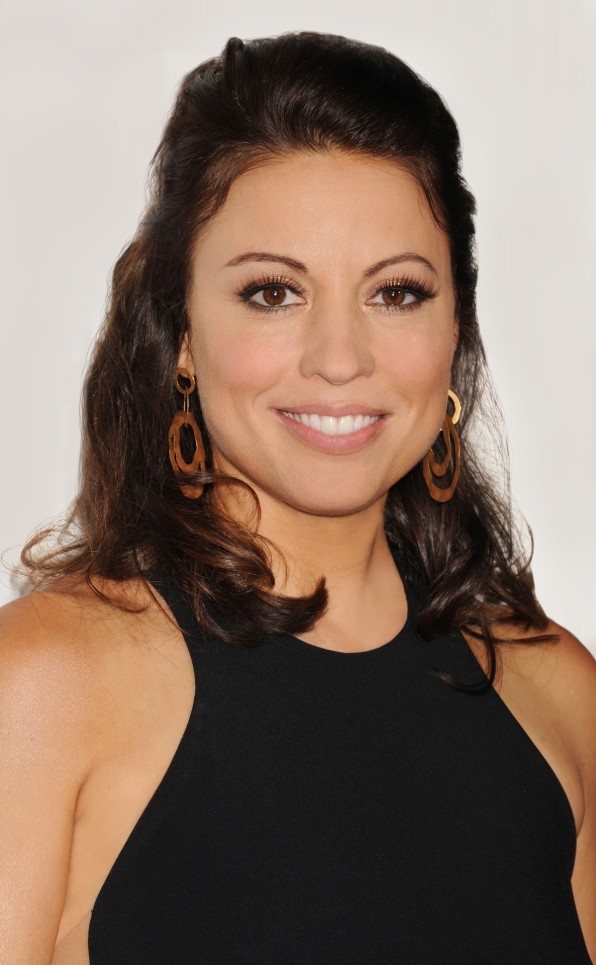
“I asked one of these directors, ‘Okay, what makes this female character funny? What’s her purpose in this scene?’” Cannon recalls. “And he said, ‘Oh she’s gonna be the emotional part of it. When he talks to her, he’s gonna realize—’ And I was like, ‘No, I get that, but what makes her funny? What’s her comedic worldview? Does she have jet lag so she’s slurring words? What’s a quirk about her that makes her more than just a sounding board?’ And his eyes went wide, like, ‘Oh yeah, that’s a good way of thinking about it.’”
As funny as she was able to make the female characters in Blockers, however, Cannon worked just as hard to marinate the comedy in a respectful dialogue about its subject matter. She wanted to get across every single parental point of view about teenage girls having sex, while calling out every aspect of the double-standard between daughters and sons. It was a tricky balancing act. After all, while the ‘damsels in distress’ mentality surrounding daughters perpetuates a narrative that women can’t take care of themselves, it’s not entirely unwarranted. Part of what the #MeToo movement has accomplished is revealing the vast sexual minefield women are forced to navigate.
“That’s the struggle. I’m a parent of a daughter and I’m progressive and I’m going to be very open with my kid, but I’m also going to be super worried,” Cannon says. “Because I know bad things happen, I know what my own experiences have been and you just don’t want anything to happen to your daughter that’s so bad it ruins her life forever.”
Cannon never would’ve predicted that the topic of consent would be so hot by the time Blockers hit its release date. She seems to have anticipated one of the major talking points of 2018, though, by making one of the characters (Viswanathan) give enthusiastic consent just before she starts drinking, so her date knows in advance that alcohol won’t be playing a role in her decision.
“It was important to me, prior to what’s happening right now, that if one of the girls says she doesn’t want to do something, the guy in the movie is really respectful,” Cannon says. “I’m glad that we’re falling on the right side of history with this movie, on the topic of consent and guys respecting women and girls respecting themselves.”
Perhaps the future where men depict women more respectfully in studio comedies is the same future where men treat women more respectfully off-screen.
(47)

